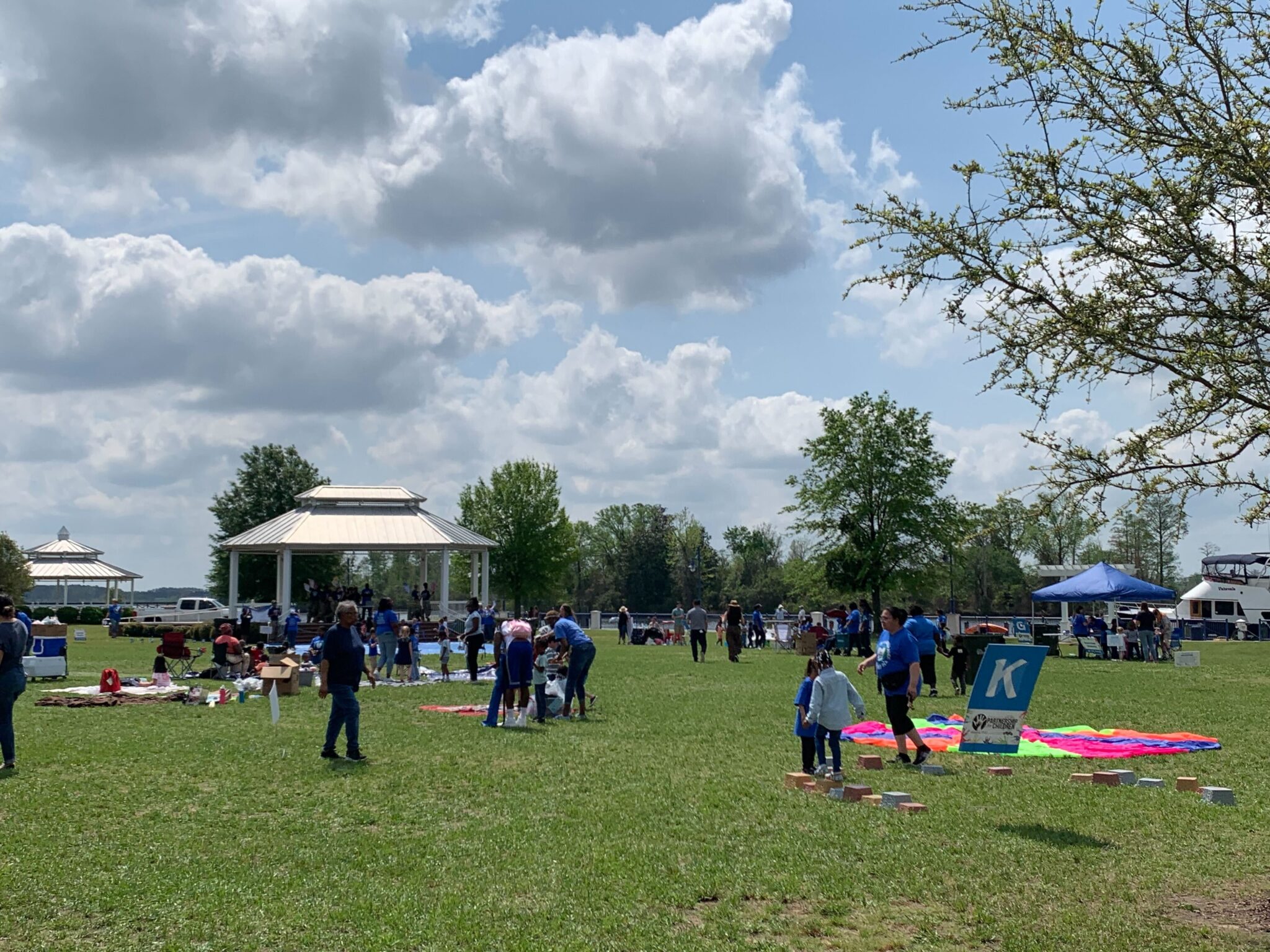'A really small amount of money'

Happy Week of the Young Child! The early childhood team has been busy covering the legislature and traveling the state to tell stories of North Carolina’s future: our young children. Katie spent Thursday at a Smart Start celebration in Washington.
Last month’s final Early Bird was written from Morganton, where Katie and I spent two days at Western Piedmont Community College talking to early childhood community college faculty. We asked them two main questions:
- What is the biggest challenge facing the early childhood profession?
- What should state lawmakers know about the early childhood profession?
The professionals who are preparing teachers responded that the profession needs respect, livable wages, education standards, and an infrastructure of support. It needs to be taken seriously, they said, by community college leaders, state and federal policymakers — everyone who cares about young children.
Since then, the state House has released its budget, and advocates told me they were surprised by its lack of investments in early education. There are no compensation grants to continue one-time federal grants that many child care providers used to raise teacher wages. There is no expansion of WAGE$, which provides education-based wage supplements to early childhood teachers, another request from advocates. And there is no subsidy floor, which would give more even funding to child care programs providing care to families through the subsidy program across the state.
“In adding up the new funding over the biennium for the early childhood pieces, it’s $45.8 million in new funding,” said Elaine Zuckerman, advocacy and communications director for NC Early Education Coalition, in an interview with EdNC. “That’s it — which is a really small amount of money given the total amount of the budget and the amount of money they had available to work with this year.”
In an interview with EdNC, Rep. David Willis, R-Union, said he expects compensation grants to be in the conference budget, after negotiations with the Senate. Willis is a co-chair of the early childhood caucus that was pushing for $300 million in grants. Gov. Roy Cooper’s budget included $500 million in grants.
Below, I’ll dive into what did make it in the House budget when it comes to early care and education. And below, don’t miss the release of the Healthy Social Behaviors hotline, a free resource for licensed early childhood educators navigating challenging classroom behaviors.
Early Bird reads: What we’re writing
Two-thirds of child care costs would be covered for some employees under proposal in House budget
This pilot program would recruit businesses interested in helping cover a third of income-eligible employees’ child care costs. The employee would pay a third, and the state would pay the remaining third.
The program, which would be administered through the state’s 75 local Smart Start partnerships, is based on Michigan’s similar program. EdNC spoke with the person who oversees Michigan’s program — Cheryl Bergman, CEO of the Michigan Women’s Commission — to find out what the pilot could teach North Carolina.
“Is it a child care subsidy program, or is it a workforce development program?” Bergman said people have often asked. “Well, it’s both.”
Early care and education ‘not considered a profession,’ community college faculty say
Legislation passed last year created an option for individuals to complete a test, which will be launched this month, to be eligible to work in child care. Before that, one community college course was the minimum requirement, with other education levels depending on programs’ license ratings.
“The lack of education is key,” said Cyndie Osborne, head of the early childhood department at Stanly Community College. “We are not considered a profession.”
Your take, for goodness sake: EdNC perspectives
Perspective | The business case for early childhood education in North Carolina
Jim Hansen, PNC Bank’s regional president for the Eastern Carolinas, highlights the link between North Carolina’s attainment and workforce goals with a need for sufficient investment in early childhood education.
Hansen is part of a group of North Carolina CEOs that has advocated for early childhood investments in recent years. That group will release a new report this week with recommendations on improving third-grade reading proficiency.
Perspective | Early childhood development through reading aloud
Fowota Mortoo, data and policy associate at the North Carolina Early Childhood Foundation (NCECF), lifts up the importance of reading aloud to young children.
Not only does research support its positive impacts on children’s development, Mortoo writes, “Reading together also provides a safe way of exploring strong emotions in the context of a story, as well as an enhanced understanding of the world. It can be a great way to start conversations that can help a child navigate familial or broader societal challenges.”
Mortoo also shares NCECF’s online tools for promoting reading and tracking initiatives that support children’s learning and wellbeing across the state.
In other early learning news: What I’m reading
Day care waitlists are so long, moms are quitting their jobs or choosing to stop having kids - From The 19th
Shelter offers rare support for homeless families: a child care center - From The Hechinger Report
Cooper's visit to Asheville child care center highlights proposed early childhood funding - From WLOS
States Seek to Ease Child Care Crunch - From Stateline
As Child Care Programs Adopt Tech Tools, New Questions Arise About Privacy and Security - From EdSurge
Research & Resources: Let's talk a helpline for teachers at their 'wits' end'
Katie Dukes covered the launch of the Healthy Social Behaviors project hotline — a free resource that educators can access via a phone call or online. Links to each option can be found here.
The project’s flyer advertises the resource for licensed early childhood educators who are struggling with children’s behavior in the classroom:
“Do you have children who bite?” the flyer reads. “Do children struggle to focus during circle time? Do challenging behaviors cause difficult transitions? Do you spend all day managing behavior? Are you at your wits’ end? Help is available for these and other behavior challenges!”
Healthy Social Behaviors is under the Division of Child Development and Early Education (DCDEE) and supports licensed programs through training, coaching, and consulting. It’s been around since 2005, and is aimed at reducing preschool exclusionary discipline by giving teachers and children the skills they need to manage difficult emotions and situations. Though the project’s staff doubled in 2019, the program has waitlists across the state for staff they cannot reach in person.
Sign up for Early Bird, our newsletter on all things early childhood.


